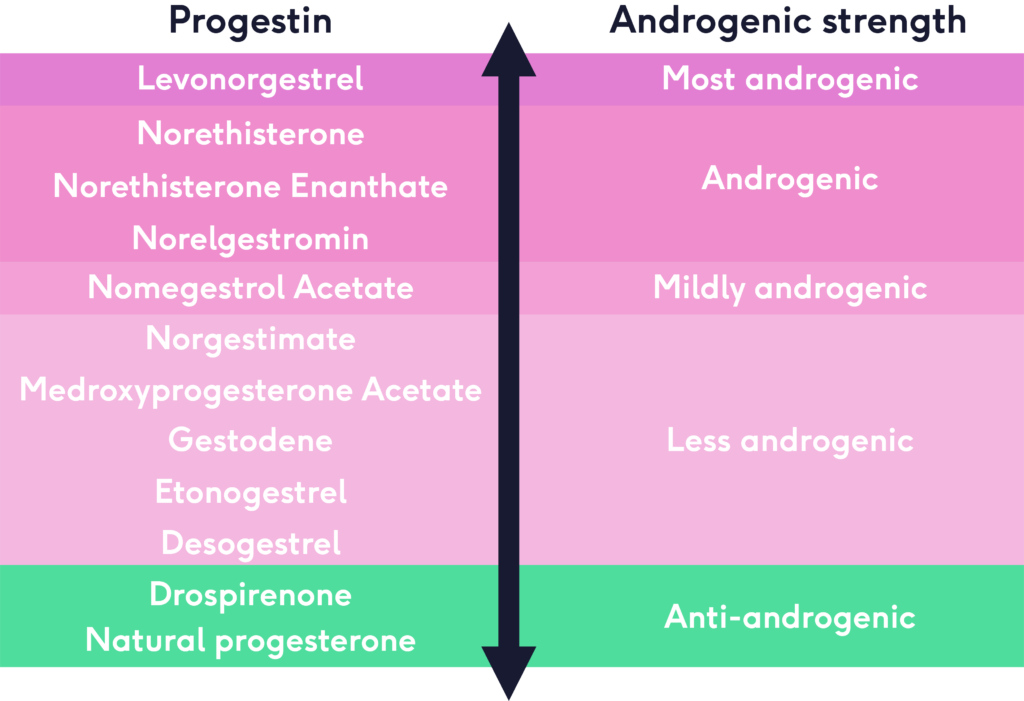
A Guide to Androgens
In this article
What's the lowdown?
Progestins are synthetic versions of your body’s natural progesterone hormone
Progestins can be androgenic or anti-androgenic
Depending on the type of progestin in your contraception, you may experience different androgenic or anti-androgenic side effects.
What are Androgens?
Androgens are a group of sex hormones generally associated with men, although some are also found naturally in women’s bodies in lower concentrations. Testosterone is the main hormone in this group.
High levels of androgenic hormones in women can cause a hormonal imbalance, which can lead to a number of problems, such as acne, excess body hair and balding. These can also be symptoms of Polycystic Ovary Syndrome (PCOS), which is associated with high levels of androgens, as well as irregular periods and problems with insulin sensitivity.There is actually no androgenic progesterone, as natural progesterone (the kind that our bodies make) is anti-androgenic. There are no added androgenic effects of progesterone in your body, unless you are using birth control.
How are androgens related to my contraception?
All hormonal methods of contraception contain progestins, which is the word to describe synthetic forms of progesterone. Some methods, known as ‘combined’ methods, contain progestin in combination with oestrogen.
Because they are similar to testosterone, some progestins can bind with the androgen receptors in our cells and either block or activate them. Androgenic progestin side effects include oily acne-prone skin, excessive hair growth (on places such as the face and the chest) and hair loss from the head.
The most recent generations of progestins have been developed in an attempt to create progestins that do not have an androgenic effect1.
Androgenic v anti-androgen birth control
Progestins can be described as ‘androgenic’ or ‘anti-androgenic’ – but the reality is that they all fall somewhere between the two extremes. They can impact different side effects a person experiences on the type of birth control. Androgenic pill side effects may include acne, depression, hair growth or loss, whereas anti-androgenic pills may affect sex drive or cause nausea or headaches due to the relevant dominance of the oestrogen. The table below summarises how ‘androgenic’ the progestins used in contraception are…

We should treat this table with some caution. Much of the information available on androgenic activity is extrapolated from data obtained from experiments on rats and rabbits. It is also quite old. Much of the data is not for pre-menopausal women (users of contraception) as the focus in studies was on hormone therapy used to manage symptoms of the menopause. It is also hugely important to be aware that that the androgenic activity of different progestins changes according to individual, sex, whether or not the progestin is taken with an oestrogen and even the type of cell.
Basically, it’s not very straightforward and knowing how this information affects you and your contraception is complex to say the least. If you are concerned about the possible androgenic effects of your birth control, or symptoms or side effects such as acne, hair growth or hair loss, then speak to a healthcare professional.
Our medical review process
This article has been medically reviewed for factual and up to date information by a Lowdown doctor.

